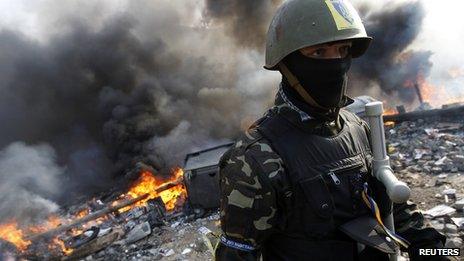Ukraine conflict: Putin says sanctions will backfire
- Published
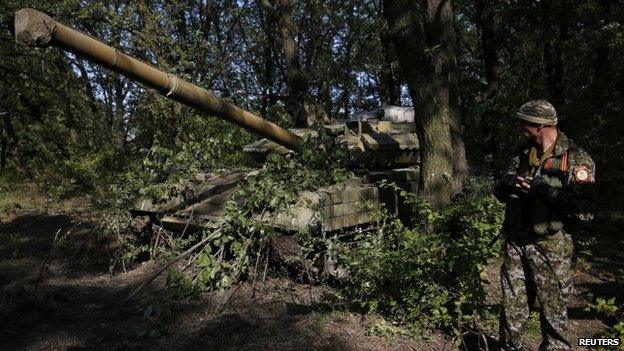
The West imposed the sanctions in response to what it says is Russia's backing for Ukrainian separatism
Russian President Vladimir Putin has denounced the latest US sanctions against his country, saying they will damage relations and hurt businesses from both countries.
The president said that bilateral relations were reaching a "dead end".
He was speaking after the US and EU bolstered sanctions against Russia over its support for separatists in Ukraine.
As shares in Russian interests hit by the sanctions fell sharply, markets also fell by more than 2.5%.
The US blames Russia for arming separatist rebels in Ukraine, as Tom Esslemont reports
Shares in the energy companies Rosneft and OA Novatek - who are both now barred from obtaining long-term loans from the US - fell 5.4% and 6.8% respectively.
In addition the rouble has plunged against the euro and dollar.
The sanctions do not target the whole energy sector, the BBC's Daniel Sandford reports from Moscow, but the creation of Rosneft was a personal project of President Putin and it is run by one of his closest allies, Igor Sechin.
Another company targeted - the gas producer Novatek - is part-owned by friends of Vladimir Putin.
'Long-term damage'
Shares in the energy companies Rosneft and OA Novatek - who are both now barred from obtaining long-term loans from the US - fell 5.4% and 6.8% respectively.
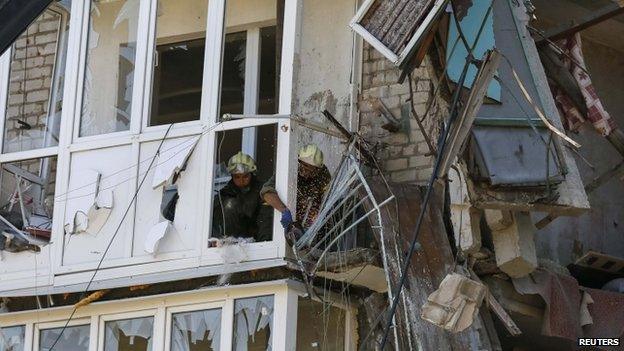
Fighting in the east of Ukraine has been raging while the US and Russia disagree over the sanctions question
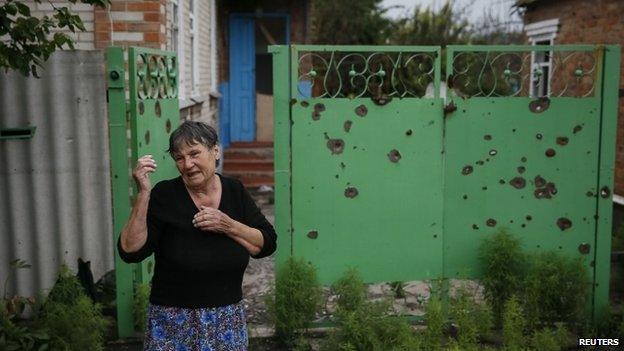
More than 1,000 civilians and combatants have been killed since mid-April, when Ukrainian security forces moved to regain control of the eastern regions
In comments made on television on Thursday while in Brazil, Mr Putin said the sanctions were driving relations between Russia and the US "into a corner".
He said the penalties would only serve to generate a backlash against American companies working in Russia and were not in the interests of American companies and "the long-term national interests of the US government and people".
The Russian president said Rosneft had a multibillion-dollar deal with US company ExxonMobil to develop lucrative oil fields in Russia. "So, what, the United States does not want it to work there now?" he asked.
Russia's foreign ministry called the US move "outrageous" and a "primitive attempt at revenge". Deputy Foreign Minister Sergei Ryabkov said Russia would retaliate but gave no details.
The new round of US sanctions, external announced by the US treasury significantly expands previous penalties by Washington, which were limited to individuals in Russia and Ukraine and a number of companies.
As well as major banks and energy firms, the weapons manufacturer Kalashnikov Concern is also on the list.
Two self-proclaimed rebel entities in eastern Ukraine - the Donetsk People's Republic and the Luhansk People's Republic - are also targeted.
Speaking in Washington, US President Barack Obama said the sanctions were imposed because Russia had failed to fulfil its promises to de-escalate the crisis in Ukraine.
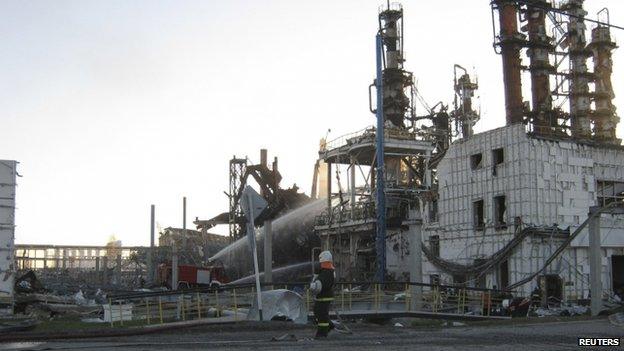
Shares in the energy companies Rosneft have fallen since the announcement of tougher US sanctions
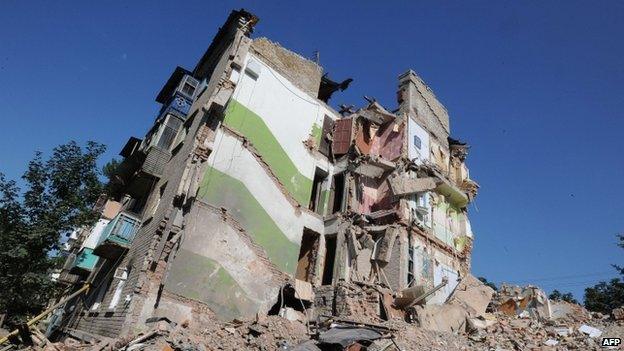
Fighting in eastern Ukraine has intensified in recent days
The US penalties stop short of a complete disengagement with sectors of the Russian economy - a step that US officials said was being held in reserve in case Moscow launches a military invasion of Ukraine.
In Brussels, the EU leaders agreed to beef up their own sanctions, external against Russia.
The EU leaders said they would ask the EU-owned European Investment Bank (EIB) to suspend new investments in Russia.
They would, they added, also seek a suspension of new lending by the European Bank for Reconstruction and Development (EBRD), which includes both EU and non-EU shareholders.
More than 1,000 civilians and combatants have been killed since mid-April, when Ukrainian security forces moved to regain control of the eastern regions, while tens of thousands of people have fled.
The crisis has led to the most serious standoff between Russia and the West since the end of the Cold War.
- Published16 July 2014
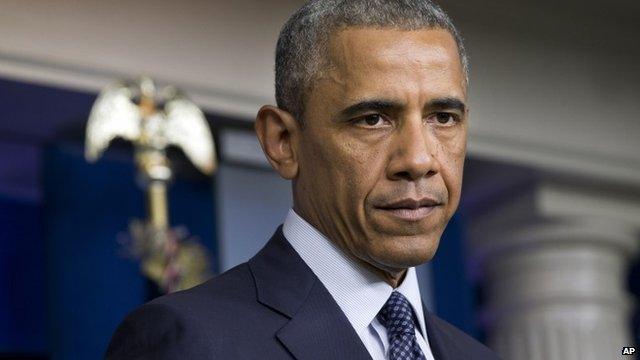
- Published13 November 2014
